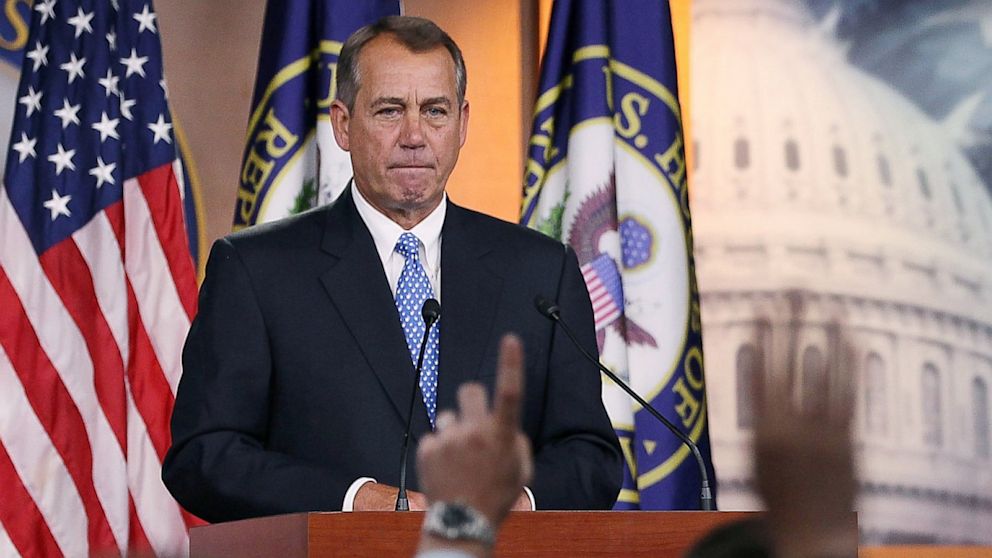House GOP Lying Low While Senate Democrats Prep Vote on Student Loans
House Republicans are using the student loan issue to criticize Democrats.

WASHINGTON, July 8, 2013 -- Once House Republicans passed a bill earlier this year to address skyrocketing student loan rates, the GOP seemed perfectly content to watch rates double this month, since the showdown gave them an opportunity to criticize Democrats for inaction and delay.
The House and Senate were in recess last week, when rates for future federally subsidized Stafford student loans doubled on July 1 from 3.4 percent to 6.8 percent.
Now that both chambers are back in session, the debate has resumed full throttle.
While Republicans believe they have backed House and Senate Democrats into a corner on student loans, Senate Democrats returned to the Capitol today unrelenting in their claim that House Speaker John Boehner is really to blame for the standoff.
"The House legislation is worse for students than doing nothing at all," Senate Majority Leader Harry Reid said during a floor speech as the upper chamber reconvened, criticizing Boehner for his insistence on bringing legislation to the House floor only if it is backed by a majority of House Republicans.
"To find a responsible solution to the student loan issue -- and every other major issue facing this Congress -- the Speaker should work with his Democratic colleagues instead of against them," said Reid, D-Nev.
Escalating the showdown, the Senate has scheduled a vote for Wednesday on a one-year student loan fix.
Reid today pushed forward a Democratic bill to keep the rates at 3.4 percent, applying the fix retroactively to any loans made between July 1, 2013 and June 30, 2014.
The bill is scheduled to face a procedural vote on Wednesday, needing 60 votes to advance.
House Republicans have characterized their own bill, the Smarter Solutions for Students Act, as one that is "consistent" with an idea President Obama first proposed in his budget request, tying the 10-year Treasury note, along with a 2.5 percent "add on," to the student loan rates. The rates would also fluctuate with the market throughout the life of the loan, an element most Democrats principally oppose.
This year, a market interest rate would soften the blow of the current law by setting the rate at 4.4 percent. That rate is generated through a formula that includes the current forecast of the 10-year Treasury Note at 1.9 percent, plus the "add on" of 2.5 percent.
PLUS loans, which are for graduate students and parents of undergrads, would have an "add on" of 4.5 percent.
Before jetting back home for parades and BBQs, a bipartisan group of senators were on the verge of a compromise that would have enacted a remedy tied to market interest rates. That deal, however, was not supported by the Senate Democratic leadership and collapsed almost as quickly as it came to light.
Monday, Boehner cited the president's "failure to lead on student loans" as part of a larger failure by the White House to lead on jobs and the economy.
"The White House and Senate Democrats have let these students down, and frankly I think they deserve better," Boehner, R-Ohio, said during remarks on the Capitol steps Monday afternoon. "It's time for the president to lead. It's time for him to bring Senate Democrat leaders together and develop a solution."
House Republicans held an event this afternoon with up to 100 students to pressure the president and Senate Democrats to pass legislation in the upper chamber.
White House Press Secretary Jay Carney told reporters today that the White House is willing to work with Congress, but said "there's a solution available here that keeps with the president's principles."
"There is a way to do this that's retroactive so that students are spared from having their rates double," Carney said. "We need to do it in a way that students are guaranteed a low rate and that -- and so that they're not overcharged in order to pay down the deficit. Our views on that are clear.